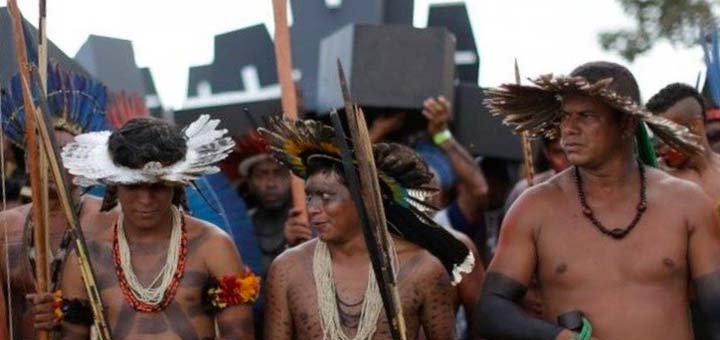
Defenders of the Earth: the environment is the new battleground for human rights
The integrity of the environment is a prerequisite for the full enjoyment of human rights: a degraded environment may indeed affect the exercise of fundamental freedoms, to the point of threatening, in severe cases, the right to life. It is in such a scenario that the struggle to defend human rights is intertwined with that relating to the protection of the environment, adopting an approach whereby the two strongly-interdependent areas may not be separated.
According to the international Global Witness organisation the environment has become a new battlefield for the protection of human rights. In its report On Dangerous Ground the year 2015 was a disastrous period for environmental activists, with more than three people killed every week. In particular, between 2014 and 2015 there was a 60% increase in this type of crime, with 185 killings occurring in 16 different countries. In 2016 the situation did not improve. In its annual report, Front Line Defender reported the murder of at least 282 human rights defenders in the environmental sector. It is significant that in both documents it emerges that the defence of indigenous peoples is a particularly risky area. The percentage of victims defending the rights of indigenous peoples or who actually formed part of these groups is very high, and confirms the unfortunate distinction of Latin America as the most dangerous place for environmental activists.
"Every day my people are dying and suffer on account of the destruction of water sources and the forest." This statement was made by Ladio Veron, a leader of the Guarani-Kaiowá people who are struggling to regain control of the ancestral lands of the indigenous peoples of the State of Mato Grosso do Sul. "In Brazil the interests of the agribusiness sector, large-scale growers of sugar cane, eucalyptus and soy beans and large livestock producers are too strong." In his recent trip to Europe, Veron denounced the ongoing violence experienced by the indigenous people of South America.
With a population of 51,000 people, the Guarani-Kaiowá are the second largest indigenous group in Brazil. In the past, the tribe lived in vast forests and plains across an area as large as that occupied by Italy, and this has now been reduced to a few reserves situated on land representing 0.2% of the traditional territories. To overcome this situation and to recover land which the 1988 Federal Constitution also recognised as belonging to the indigenous peoples, the Guarani periodically attempt to regain control over the territories exploited by multinational corporations. By way of a response to such action the entrepreneurs have reacted violently, employing armed paramilitary groups and militias to defend the borders.
Unfortunately, the situation of the Guarani Kaiowá is not an isolated case. Although the international community has recognized the rights of these peoples and it has been clearly stated that they should be respected in the United Nations Declaration on the Rights of Indigenous Peoples, there is a significant gulf between practice and theory. The indigenous peoples are victims of utilitarian interests rooted in the Western model of development, a system that perpetuates values and actions at the root of environmental exploitation and human rights violations. The social tension existing between these populations and governments that apparently take no definite steps to ensure their rights is very high and the protests against President Michel Temer that recently occurred in Brasilia are an example.
To overcome the impasse it is necessary to create a new model of development that will aim at a form of co-existence between man and the environment, replacing the utilitarian view with a moral vision of climate justice. The intervention of activists in this direction is crucial, but it is not protected. To claim a 'collective right' to an environment that is healthy, secure and accessible to indigenous peoples is a revolutionary act, especially if - as in this case - it is made at the risk of their lives.
It is thus increasingly urgent for the international community to implement the commitments undertaken with the Paris Agreement in 2015, and in doing so not to circumvent the link existing between the human rights referred to and the protection of the environment.
Chiara Soletti
*Article written in collaboration with Giovanna Borrelli
Published for Italian Climate Network on La Stampa
